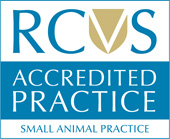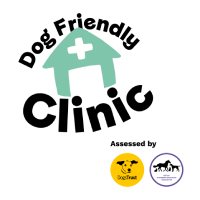From skin irritations to digestive issues, understanding and addressing common allergies in dogs is essential for ensuring their wellbeing. In this blog, we delve into the world of canine allergies, exploring their types, symptoms and effective management strategies.
Food Allergies in Dogs
Food allergies can manifest through various symptoms, including gastrointestinal issues or skin problems. Common food allergens for dogs include proteins such as beef, chicken, dairy and grains like wheat and soy. Symptoms of food allergies in dogs may include itching, redness, swelling, ear infections, vomiting, diarrhoea or changes in bowel habits. It’s essential to distinguish between food allergies and food intolerances, as they may present similar symptoms but have different underlying mechanisms.
Your vet may recommend hypoallergenic or prescription diets that exclude the identified allergens. In some cases, they might also suggest the use of supplements like omega-3 fatty acids to promote skin health. It’s important for dog owners to adhere to the prescribed diet to effectively manage and alleviate food allergies. Speak to a vet at Boundary Vets in Abingdon, for advice on the best food for your dog and what to avoid, as well as a proper diagnosis of food allergies.
Contact Allergies
Contact allergies in dogs, also known as contact dermatitis, occur when a dog’s skin reacts adversely to certain substances it comes into direct contact with. These substances, called allergens, can cause irritation and inflammation on the skin. Common sources of contact allergies in dogs include certain plants, chemicals, cleaning agents, fabrics and materials. Should your canine companion be allergic to certain materials, skin irritation and itching will manifest at the sites of contact, often the feet and stomach. When the allergen is identified and removed, the issue is often resolved, however systemic or topical therapies could be necessary. Allergies caused by contact could be more common in certain seasons of the year, impacted by your pet’s environment. Pollen, dust and certain plants can cause irritation.
If you suspect your dog has contact allergies, it is advisable to consult with a nurse or vet for a check-up to discuss this, which may lead to a tailored treatment plan. Additionally, preventive measures such as avoiding known allergens and using hypoallergenic products can help manage and reduce the likelihood of contact allergies in dogs.
Book an appointment with Boundary Vets in Abingdon.
Flea Allergies
An insect bite allergy is an intensified inflammatory reaction to the bite or sting of an insect. Sensitive dogs may experience this allergic response from arachnids like spiders and ticks, as well as insects such as fleas, blackflies, deerflies, horseflies, mosquitoes, ants, bees, hornets, and wasps. The most prevalent insect allergen in dogs that causes flea allergy dermatitis (FAD) is flea saliva. Flea bites cause modest local irritation in most dogs. A single bite will cause local itching. Consulting with a nurse at Boundary Vets can offer guidance on safeguarding your dog and other pets against fleas.
In situations where rigorous flea control is challenging or when dealing with intense itching, your vet might recommend antihistamines or corticosteroids (steroids) to mitigate the acute allergic reaction and provide immediate relief.
Learn more about flea and worming treatment for your dog.
Diagnosing Allergies in Dogs
Diagnosing flea allergy dermatitis is typically straightforward. The identification of fleas on your dog’s body and the application of a flea-killing product to prevent bites are commonly used for diagnosis. It is also important that environmental control of fleas is done during this time to help reduce the ongoing flea infestation.
If allergies are suspected, your vet may suggest specific tests to identify the allergen responsible for the reaction. It’s important to note that determining the exact cause of an allergy through testing may not always be feasible.
Treating Allergies in Dogs
The optimal approach to managing an allergy involves avoiding the trigger and allergen, though this may not always be feasible. The specific treatment method varies based on the type of allergy affecting your dog. For instance, addressing flea allergy dermatitis entails eliminating the fleas, while managing a food allergy or intolerance necessitates a dietary change.
We will recommend different treatments depending on the cause and severity of your dog’s allergic reaction. For hives, antihistamines, cortisones or medicated shampoos may be recommended. In the case of food allergies, suggestions might include incorporating fish oil or other Omega-3 fatty acid supplements. Skin allergies may be addressed with vet-prescribed anti-inflammatory wipes or soothing shampoo to alleviate irritation.
Contact us today!
Our nurse consultations provide a range of services to complement our vet team in offering the best possible advice, treatment and care for your pet, including allergy examinations.
Depending on the cause and severity of your dog’s allergic reaction, we will examine your pet and recommend the best treatment plan for them. In addition to any lifestyle changes that might be necessary, we may also prescribe an allergy relief medication for your dog that will help control the signs associated with the allergic reaction, such as itching and any secondary skin infections that might have developed as a result of the irritant.





